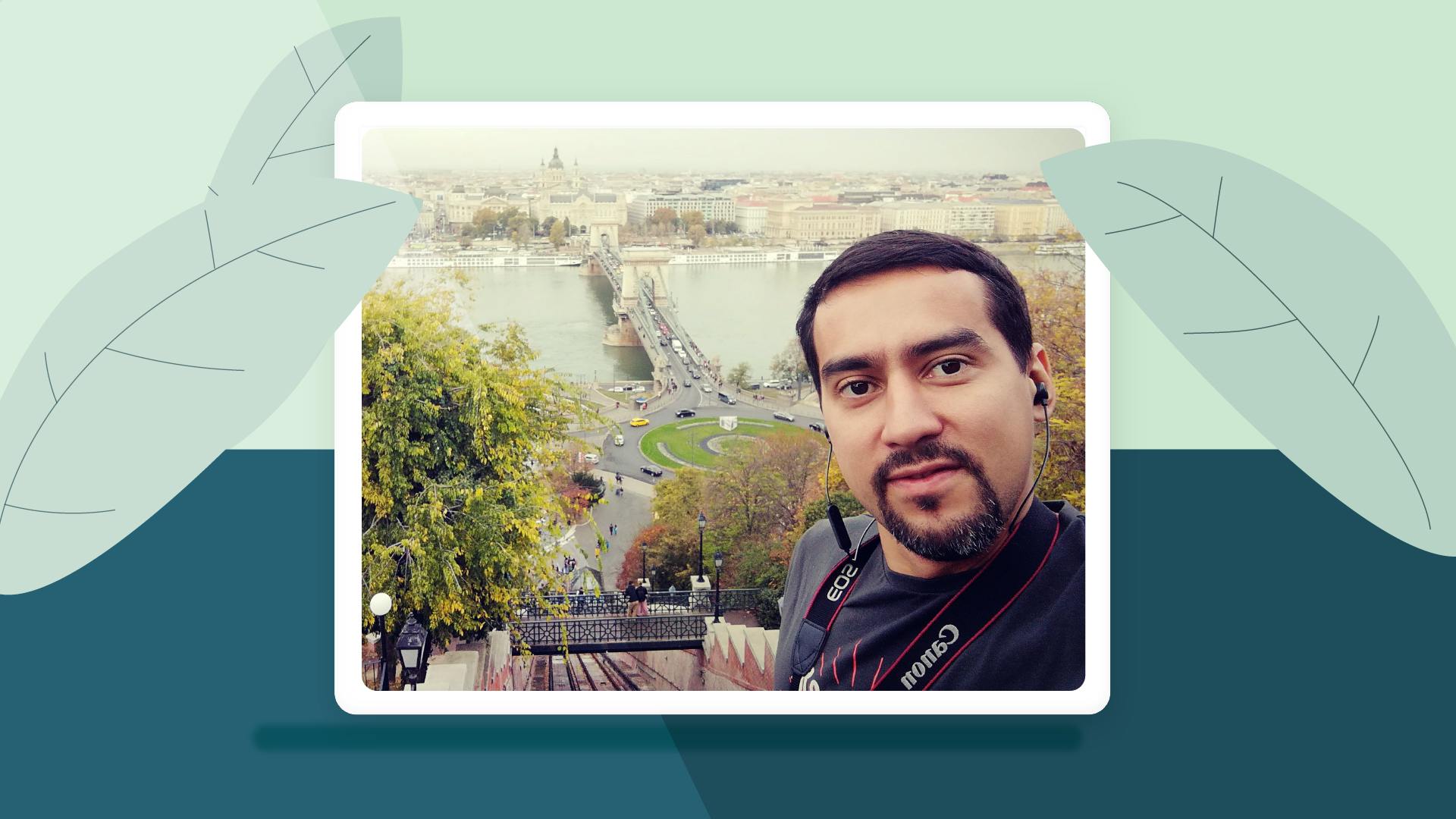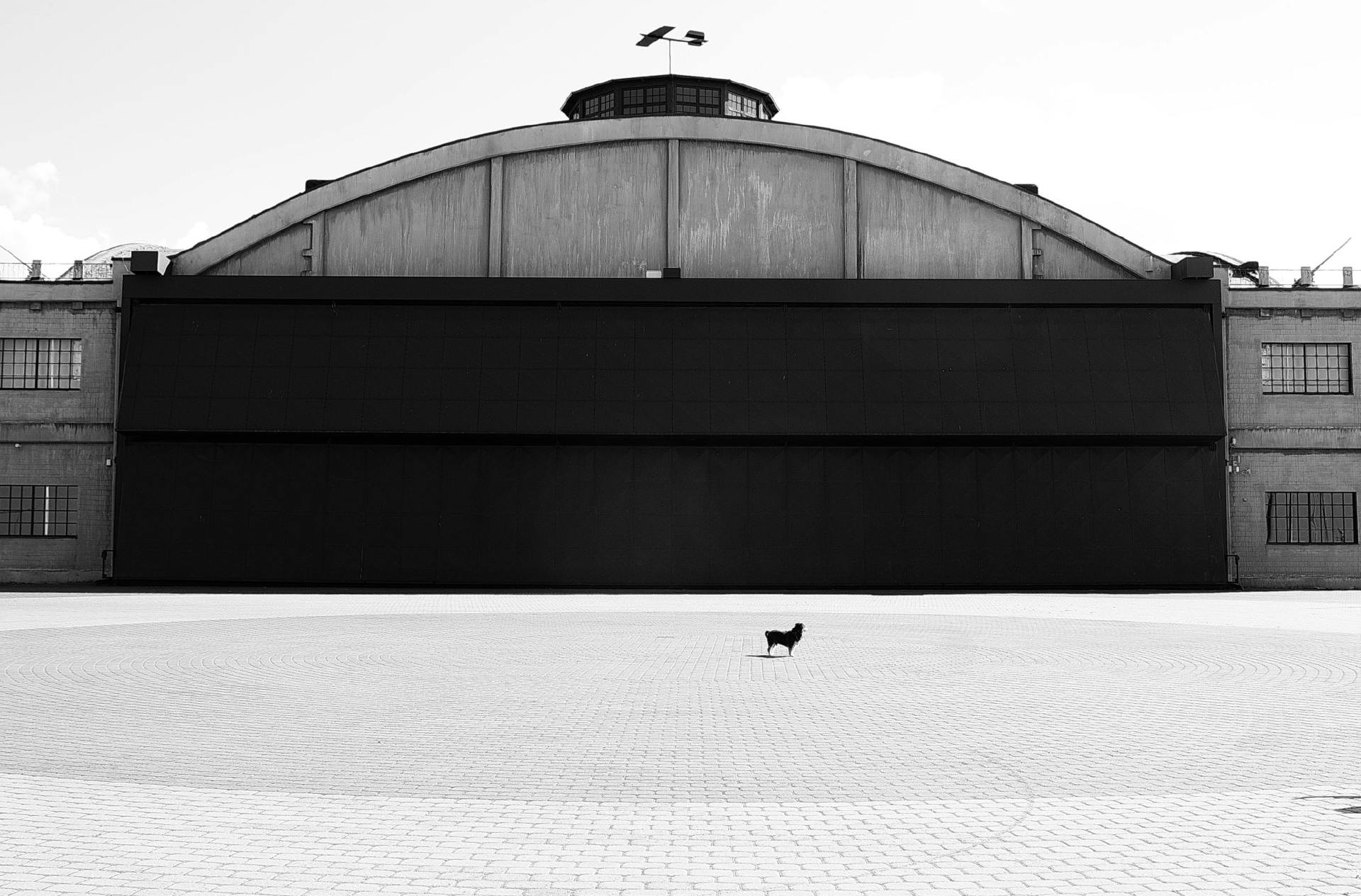I was excited about what Veriff aimed to achieve and wanted to be part of that
Luis Barragan has been a Team Lead at Veriff for a little over two years, seeing the company grow from 30 people to 300. We asked him all about his life before Estonia, his work before Veriff, and his new found love of photography.

David Lorbiecke
Joining me in a cozy café while it gently snows outside is Luis Barragan, one of Veriff’s Team Leads. As most of the interviews I’ve done have had to rely on video-calling, it was nice to be able to have a conversation in-person, and on top of that, Luis is someone with a plethora of interests so there was plenty to talk about.
To get readers up to speed, could you tell me a little about the history of your career path? What were you doing before you joined Veriff?
Well first off, I’m originally from Barquisimeto (a city in Venezuela), which is where I grew up and studied in my early years. And speaking of studying, I was attending university and failing in a certain subject that was delaying my graduation. Since I was failing in this subject, I figured I’d try to excel in something else to make up for it.
With that in mind, I decided to create a startup project, basically thinking that if I wasn’t going to be great in formal education, I would try to be better with hands-on learning. At the time I was studying electronic engineering and I had friends studying mechanical engineering, so it just made sense to put those things together and build a robot (something like what Boston Dynamics was doing, but more simplistic). Together with my friends, we founded an NGO and gathered support from the university and eventually got our own office and computers, and then started to pitch the idea to companies to gain more funding.
In the end, it turned into a full organization with recruitment and hiring, to the point that I knew it would survive even if I left. Funnily enough, during my time there we never actually finished building a robot, and the generation after me switched up the idea and moved to cars instead of robots.
Although the robot was never completed, I did end up building the software for it – which is how I entered the field of software engineering. Knowing that all I really needed was a computer and internet, I officially switched my career to software engineering around 2005 and then moved to capital of Venezuela, Caracas.
I began working as an SAP consultant doing Java and working on tight deadlines with a lot of challenges. Through this I got my first taste of working on projects with people all around the world. Although I could have stayed in Venezuela, I had a lot of options available to me, so I decided instead to head to Europe. After investigating several different places, I found the best opportunity available in Estonia, so I moved to Tartu in 2007.
In Tartu I worked as a consultant for several years, working on projects that were located in different areas, but after 4 years I eventually became bored with the job and thought about moving to somewhere new. Before I could leave though, I discovered the startup GrabCAD and ended up working there for 7 years. GrabCAD was a great experience, and so far my longest place of employment to date.
All in all, you’ve been in Estonia for around 14 years. How has it been adapting to such a different climate? Both physically and socially.
It honestly hasn’t been that hard to adapt to Estonia, but perhaps that’s because I kept myself really busy for at least the first 5 years, giving me no time to think about adapting. In addition to working my main job, we (my wife and I) formed an NGO to fight against climate change and promote environmental consciousness. We were writing articles, hosting events, organizing film festivals, etc. for 2-3 years until we eventually ran out of energy to continue it the way we wished to.
During this time I formed another startup as well. The startup was about creating something that was a kind of mix of Spotify and Endomondo to assist people who enjoy running with music. I wanted something that would analyze how a person runs, know when they’re exhausted and play music accordingly. Unfortunately, due to a real lack of time, I had to abandon this project.
In addition to work, I should also mention that sport in general was a great way to keep myself in a positive headspace, usually basketball or just general fitness work.
How did you originally find out about Veriff?
Well, at GrabCAD I was kind of hitting the ceiling of where I could progress, so I took a couple of months off and started looking into different opportunities. I had heard a little about Veriff, mostly word of mouth, and a friend invited me to a Veriff opening party. Unfortunately, I wasn’t able to make the party, so instead Tiit Paananen (Veriff’s VP of Engineering) and a recruiter met me at a coffee shop – much like the one we’re in now – and I told them what I was looking for and they told me about what Veriff could offer.
It turned out that the company size was/is around the size I was looking for. It was a company that felt established without also being too “corporate”. In addition, I was excited about what Veriff was trying to achieve and I wanted to be a part of that.
You’ve been a Team Lead in Veriff for a couple years now. How do you feel things have changed over the years?
When I first joined Veriff, I think there were around 30 people in the office. The place itself was small, only 1 floor. For me, it was pretty great because I could easily say “hi” or “what’s up?” to everyone there. In general, the atmosphere was very friendly – it pretty much exactly what I wanted. I could easily see and talk to the marketing team or the development team, or anyone else really.
Coming from GrabCAD, Veriff took a very different approach to growth. At GrabCAD, as soon as the company started to grow, it branched out to other locations in different countries – distributing different departments to different areas. Since there wasn’t much of a market at all in Tallinn for GrabCAD, it made sense to branch out to other areas. At Veriff, the departments and focus has stayed mostly centred in Tallinn which has also helped make it more open and visual to the general public within Estonia.
As we’ve grown, the amount of noise and activity has probably multiplied 10x. Going from 30 to 300 or so people, it can be exhausting, but also exciting. With so much happening, there can often be a fear of missing out on things. So many game nights or activities or everything else in-between that you want to attend, but don’t have the time for.
Even though you’ve clearly got your hands full, I know that you also have taken up photography as a hobby. How did that come about?
I was just looking for something to do with any free time that I had so I borrowed a camera from a friend for a couple weeks, fell in love with it, and then bought my own.
What type of photography do you prefer?
I’m more of a cityscape person, although I’ve tried portrait photography and a few others. I prefer the vibe that a city can provide. It’s usually pretty enjoyable to just go for walks and take photos when I see something that really captures my eye. (You can see some of Luis’ photos on his Instagram page).

Now we enter the end of the interview where I’ll ask you a few “Quickfire Questions”.
What book is a ‘must read’ for you, and why?
That’s a hard question for me as there’s so many different ones to choose from. I really loved reading Dostoyevsky when I was younger. More recently, it’s more IT type books that I read. I would say the ‘The Pragmatic Programmer’ is a must read for any programmer.
What podcast would you most recommend?
If you like longer ones and learning about the economy, I recommend Freakonomics.
Mac or PC?
I’m not really one or the other, but I’ve had a Mac for the past 10 years now so I guess I’ll say Mac.
If you weren’t a Team Lead, what would you be?
An electronic engineer? Basketball player? Maybe Product Manager? Hard to say really, I’m down for anything.
Best advice you’ve ever been given?
I don’t really remember any really lasting advice that was given to me. Let’s just go with “don’t take everything too seriously and try to enjoy life”.


